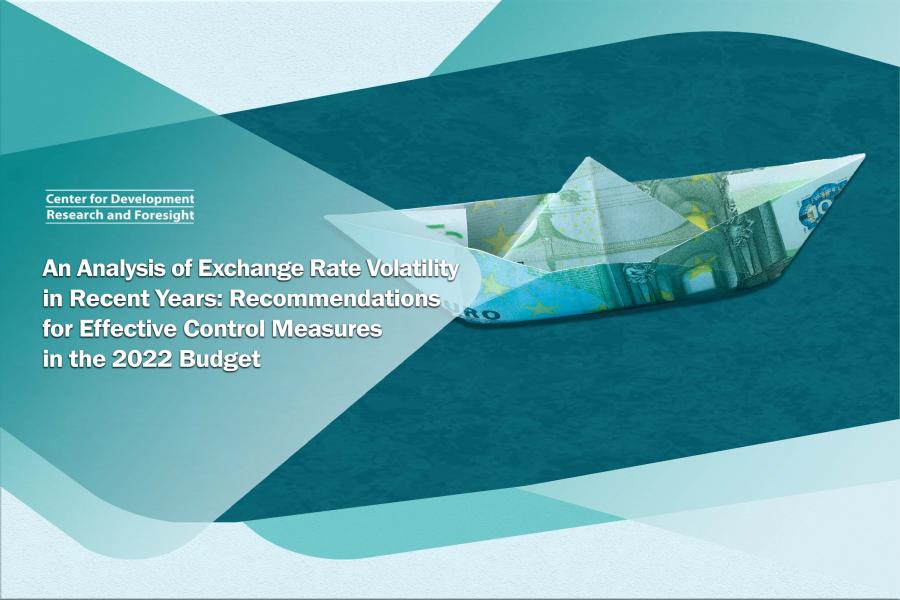
-
بررسی آییننامهها و دستورالعملهای برنامه هفتم پیشرفت
-
بررسی عوامل موثر بر افزایش تصادفات و تلفات جادهای و سوانح رانندگی و دادهکاوی تلفات انسانی
-
سازماندهی و بازآرایی فضایی آموزش عالی کشور
-
به روز رسانی سند ملی آمایش سرزمین
-
انجام مطالعات مناطق آزاد به عنوان نواحی پیشران اقتصادی کشور
-
اصلاح ساختار بودجه و پیاده سازی نظام یکپارچه مدیریت اطلاعات مالی دولت (IFMIS)

The foreign exchange market, a crucial element of the economy, exerts a profound influence on the regulation of other economic sectors. In recent years, significant exchange rate fluctuations have been observed, predominantly stemming from the direct impact of international sanctions and the improper management of the foreign exchange market. These fluctuations have emerged as a primary catalyst for macroeconomic instability.
This report delves into an examination of the foreign exchange market's performance during the period 2016-2020 and the first seven months of 2021. It conducts a thorough analysis, identifies prevailing issues and challenges, and formulates practical solutions for incorporation into the 2022 budget.
The currency market's instability is rooted in a multitude of factors. Key challenges and issues in the foreign exchange market include:
- Declining foreign exchange revenues due to sanctions imposed on Iran's oil and oil products.
- Increasing international restrictions on the currency transfer network.
- Delays or non-repatriation of export earnings by certain exporters.
- A surge in order registrations and import demands processed through customs systems.
- A substantial upsurge in capital outflow aspirations.
- Diminished capacity for the central bank to actively intervene in currency market management.
- A widening gap between the official exchange rate and the market rate, further exacerbating corruption.
- A lack of mechanisms to safeguard the value of assets for the general public.
- Escalating concerns regarding the intensification of sanctions.
- Heightened uncertainty triggered by the non-approval of the anti-money laundering and terrorist financing bill.
The currency market is subject to a complex interplay of internal and external factors, including economic, political, and managerial influences. While some of these factors can be addressed through policy interventions, others remain beyond the direct control of the country's monetary authorities.
Given the identified challenges, a set of corrective measures is essential to improve the organization and management of the currency market. Proposed policies and solutions include:
- Enhanced import management strategies to effectively regulate actual currency demand.
- Maintenance of consistent and predictable foreign exchange policies to foster market stability.
- Effective government management of foreign currency earned from non-oil exports, particularly revenue generated by state-owned enterprises.
- Vigilant monitoring of foreign currency carried by travelers and a resolute approach to combating illicit currency movements.
- Mandatory registration of all foreign exchange transactions by authorized and unauthorized currency exchanges, accompanied by strict oversight by the Central Bank.
- Encouragement of foreign exchange holders to open foreign currency deposit accounts to promote financial stability.
- Enforcement of stricter measures by customs authorities to address quasi-official imports and ensure compliance with trade regulations.
- Active management of potential currency fluctuations by the central bank to mitigate market volatility.
- Expansion of service exports, particularly in the medical and tourism sectors, to diversify the economy and generate foreign exchange earnings.
- Reduction of the demand for banknotes through the promotion of foreign currency credit cards to enhance financial efficiency.
- Restraining liquidity growth by curbing banks' indebtedness to the central bank to maintain macroeconomic stability.
- Introduction of liquidity-absorbing financial instruments to regulate the money supply and manage inflationary pressures.



